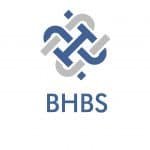Posted by Behavioral Health Billing Solutions. LLC.

Important information from OhioMAS to Certified Providers of Mental Health, Substance Use Disorder and MH/SUD Providers. Official waiver notification available here.

To: Certified Mental Health (MH), Substance Use Disorder (SUD), MH/SUD Providers
From: Janel M. Pequignot, Chief, Licensure and Certification
In accordance with Ohio Administrative Code (OAC) 5122-25-05 a provider is required to provide the following services to at least 10 persons for at least two months prior to applying for Certification, and at least 5 clients must be active at the time of the certification survey:
-
General Services (OAC 5122-29-03)
-
Mental Health Day Treatment Services (OAC 5122-29-06)
-
Crisis Intervention Service (OAC 5122-29-10)
-
Community Psychiatric Supportive Treatment/CPST (OAC 5122-29-17)
-
Prevention Services (OAC 5122-29-20)
-
Intensive Home Based Treatment/IHBT (OAC 5122-29-28)
-
Assertive Community Treatment/ACT OAC 5122-29-29
-
Outpatient Treatment Program (OhioMHAS is in process of rescinding) (OAC 5122-29-34)
&nsbp;
In order to expand access while providers transition to BH Redesign, OhioMHAS will waive the provisions of this rule for any eligible provider submitting an application for certification by June 30, 2018. An eligible provider is a provider certified to provide one or more of the following services as of December 31, 2017 and that has maintained continuous certification at the time of its request:
-
Behavioral Health Counseling and Therapy Service (OAC 5122-29-03)
-
Mental Health Assessment Service (OAC 5122-29-04)
-
Pharmacologic Management Service (OAC 5122-29-05)
-
Partial Hospitalization Service (OAC 5122-29-06)
-
Crisis Intervention Mental Health Service (OAC 5122-29-10)
-
Community Psychiatric Supportive Treatment (CPST) Service (OAC 5122-29-17)
-
Intensive home based treatment (IHBT) service (OAC 5122-29-28)
-
Assertive community treatment (ACT) service (OAC 5122-29-29)
-
Outpatient treatment program certification (OAC 5122-29-34)
-
Residential treatment program certification (OAC 5122-29-36)
-
Detoxification program certification (OAC 5122-29-37)
&nsbp;
Please use the attached form to both request certification and request a waiver. If you have any questions, please contact your agency’s assigned lead surveyor.
What does that mean for your agency?
If you are an existing MH or SUD agency and wish to provide a new service, you have options to bypass the requirements for a service certification if you qualify. While this is good news, it isn’t currently being offered to NEW agencies to Ohio. This means that they will still need to provide two months of service to 10 clients before applying for a certification. That’s a big ask for any provider wishing to begin provide services in Ohio to assist with our Opioid Epidemic. And surprisingly, there are providers that want to come to Ohio now. It may be incredibly difficult for them to sustain financial viability during the pre-certification time period.
&nsbp;
New info on BH Redesign?
In addition, last week, BHBS discovered that the MITS portal only allows data entry of 200 claims per billing provider each day. Many agencies are currently utilizing the MITS portal to enter claims and maintain financial stability while they attempt to look for a viable alternative for an electronic health record. Most agencies far exceed 200 claims in one day.
We sent an email to Medicaid asking them to reconsider changing this on behalf of clients we know are doing data entry as well as the ones BHBS do data entry for. Today, one of our clients heard back from Medicaid (we did not), that the daily limit has been increased to 250 but only until April 30th, 2018.
Why does that date sound familiar? It’s the same date that your payments will end if you signed up for the Guaranteed Payment plan offered by Medicaid to current providers if you were unable to bill as of January 1st, 2018.
I see this as a warning sign. IF you are currently unable to bill electronically, either due to your vendor, agency capability or you haven’t purchased an electronic health record, you have 3 1/2 month’s to get ready. That’s a rushed implementation period IF you decide today.
Other news was a clarification of how the NCII edits work. Providers need to be aware of what they are and how they work. We had a couple agency’s report that providers did a counseling service for a client and then later in the day, the client experienced a crisis event. Current state, only one of those services is billable.
My question is “So if someone comes in for counseling and then goes into a crisis situation (which is common), should we not help them?” In a time of state-wide crisis, we are trying to get people into treatment that need it. Now if a situation occurs that is very common, we either can’t help them OR we can’t get paid for what we know we should do. This is a change that we will most likely need to fight for to get changed. And the service crosswalk does not indicate that other other edits are in place to prevent this, but they are there. As far as I know if you provide both services, the only alternative is to bill for only one.
Medicaid’s next EDI meeting is next Wednesday. If you are having problems with billing, concerns about April 30th and what that means, or just to see the process, come to the meeting or at least call in. Take the time to be heard.
